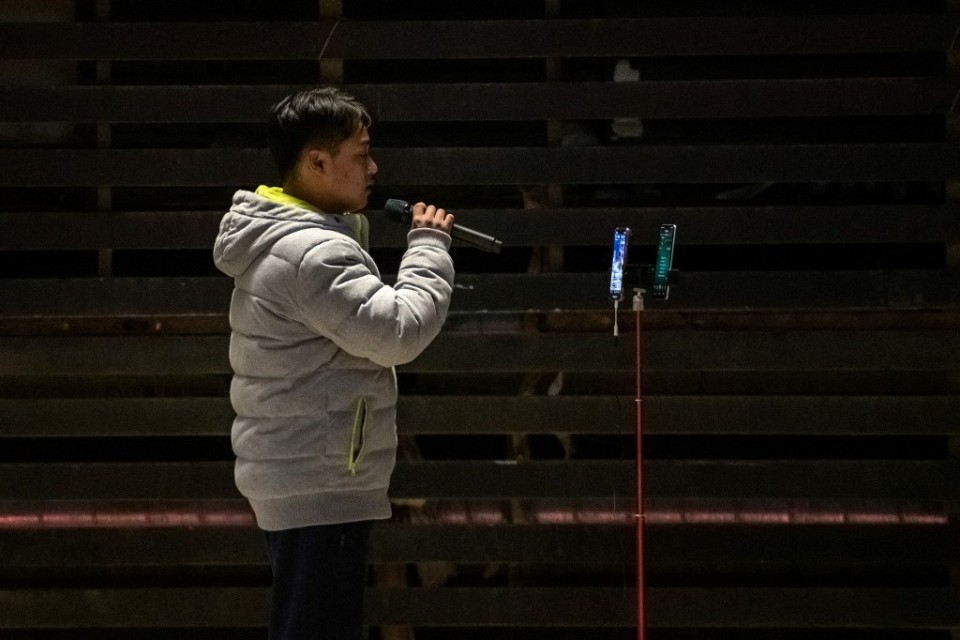
BAODING, China (AFP) — A decade ago the plight of former champion gymnast Zhang Shangwu shocked China and made world headlines when he was discovered begging in Beijing, prompting one of the country’s richest men to give him a job.
That should have heralded a turnaround for the troubled Zhang, who had been imprisoned for theft after injury ended his gymnastics career.
But after another stint in jail, Zhang is again making a living on the streets, doing handstands and singing for a live online audience in a carpark in his home city of Baoding.
It marks a second fall for the former Olympic hopeful, whose predicament cast a spotlight on the fate of Chinese athletes when he was spotted begging and street-performing in Beijing in 2011.
Athletes in China, a leading Olympic power, are often reared in special schools from a young age and can struggle to adjust to normal life once their careers are over.
Zhang appeared destined for the Olympics after he won two gold medals at the 2001 Universiade. But a year later a tendon injury brought his promising career to an end.

With little education, he took jobs as a waiter and a care worker, but injuries hampered his ability to work and he turned to theft, spending nearly five years in jail before being released in April 2011.
Zhang’s luck changed dramatically in July that year when he was recognised performing stunts and begging on the street. He was inundated with job offers and took up a post as a fitness instructor at the company of Chen Guangbiao, a wealthy recycling magnate and philanthropist.
“In China, there are many athletes who have experienced the same thing as me, so I’m one of the lucky ones as the media and society uncovered my plight,” Zhang, then 27, told AFP at the time.
But in March last year, Zhang said on Chinese social media that he had again been released from prison after serving jail time for theft.
Zhang no longer talks to media — “it has been reported so many times, don’t ask me again”, he said — but on a recent evening in Baoding, he did handstands and chatted to an online audience of a few hundred people.
Decked out in a Chinese national team top, he saluted and bowed to a non-existent crowd.
Online viewers send him real or virtual gifts, which can be turned into cash.
On another occasion, he rigged up a microphone and small speaker and sang for about 40 minutes, before his mobile phone ran out of data.
© Agence France-Presse







